6 ways your job may be hurting your health
Find out how working too much can make you sick—and what you can do about it.
Updated on August 29, 2022
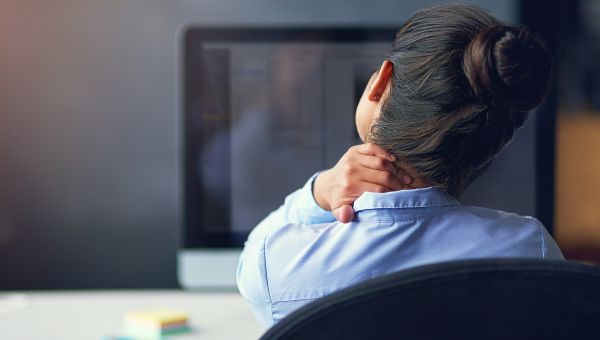
When you’re unhappy at work, it doesn’t just influence your job performance. It can seep out into the rest of your life, and even damage your mental and physical health. In a 2019 survey from Mental Health America, two-thirds of respondents said problems at the workplace negatively affected their sleep. Another half reported they took up unhealthy behaviors to deal with… Show More
When you’re unhappy at work, it doesn’t just influence your job performance. It can seep out into the rest of your life, and even damage your mental and physical health. In a 2019 survey from Mental Health America, two-thirds of respondents said problems at the workplace negatively affected their sleep. Another half reported they took up unhealthy behaviors to deal with the stress of their jobs.
And that was before the COVID-19 forced a sea change in the American workplace. According to the American Psychological Association’s 2021 Work and Well-being Survey, which took place a year after the pandemic began, 59 percent of respondents were affected by job-related stress during the prior month. Participants reported feeling physical exhaustion, lack of motivation, fatigue, and difficulty focusing while on the job.
Institutional changes like improved work-life balance and better benefits may be the answer to some job-related health issues. But there are other steps you can take to protect yourself.
Here are some ways your job may be doing a number on your well-being—and what you can do about it.
Show Less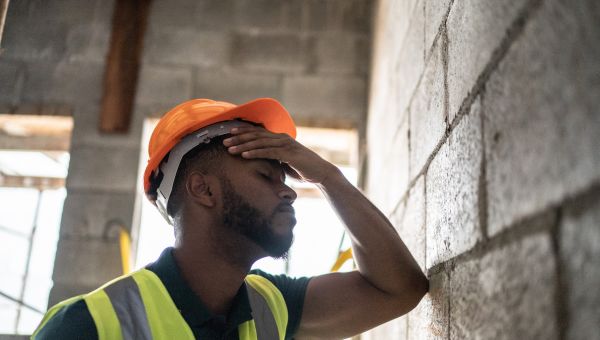
Stress
While some on-the-job stress can help push you to do your best, too much can make you sick. Research shows that several factors contribute to work stress, including:
- Low pay
- Working long hours
- Working late-night shifts
- A lack of advancement opportunities
- A lack of control over … Show More
While some on-the-job stress can help push you to do your best, too much can make you sick. Research shows that several factors contribute to work stress, including:
- Low pay
- Working long hours
- Working late-night shifts
- A lack of advancement opportunities
- A lack of control over responsibilities
In the short-term, these can lead to headaches, sleep issues, mood swings, and gastrointestinal problems, among other troubles. In the long-term, if stress becomes chronic, it can increase the risk of several medical conditions, including cardiovascular disease and mental health disorders. (More on those in a bit.)
Show Less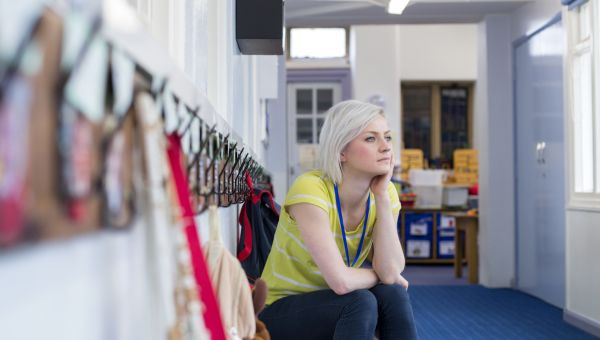
Anxiety and Depression
Long hours can add up to more than everyday stress. A 2019 study in the Journal of Epidemiology & Community Health of more than 20,000 British workers showed that depression and anxiety shot up the more they worked. The researchers found that women working more than 55 hours per week were two-… Show More
Long hours can add up to more than everyday stress. A 2019 study in the Journal of Epidemiology & Community Health of more than 20,000 British workers showed that depression and anxiety shot up the more they worked. The researchers found that women working more than 55 hours per week were two-and-a-half times as likely to have symptoms of depression and anxiety compared to women who worked between 35 and 40 hours per week. For both men and women, depressive symptoms were higher when they were required to work frequently on weekends.
A 2020 poll in Harvard Business Review found that 89 percent of people said their workplace wellbeing declined during the pandemic because of factors like loss of work-life separation and increased hours and workload.
Show Less
Heart Attack and Stroke
It’s difficult to link work stress directly with heart disease because so many other factors contribute to the condition, including genes, diet, exercise, and stress unrelated to the workplace. But in a 2018 meta-analysis of studies related to work stress and cardiovascular conditions in the … Show More
It’s difficult to link work stress directly with heart disease because so many other factors contribute to the condition, including genes, diet, exercise, and stress unrelated to the workplace. But in a 2018 meta-analysis of studies related to work stress and cardiovascular conditions in the Journal of the American Heart Association, researchers found there was likely a 30 to 50 percent increased risk of cardiovascular disease among people who are stressed at work. One potential explanation for this, they said, is the release of cortisol and epinephrine when someone is stressed at work. Too much of these hormones can cause inflammation, leading to different kinds of stress on the heart and blood vessels.
Show Less
Skipped Meals
It's all too common: You’re running late and skip breakfast, or you’re chained to your desk and can’t take time for lunch. Missing either meal can lower the overall quality of your diet, according to a 2020 study in the journal Public Health Nutrition. It may also make it easier to fill up on… Show More
It's all too common: You’re running late and skip breakfast, or you’re chained to your desk and can’t take time for lunch. Missing either meal can lower the overall quality of your diet, according to a 2020 study in the journal Public Health Nutrition. It may also make it easier to fill up on vending machine junk food later in the day, potentially spelling trouble for your heart.
Show Less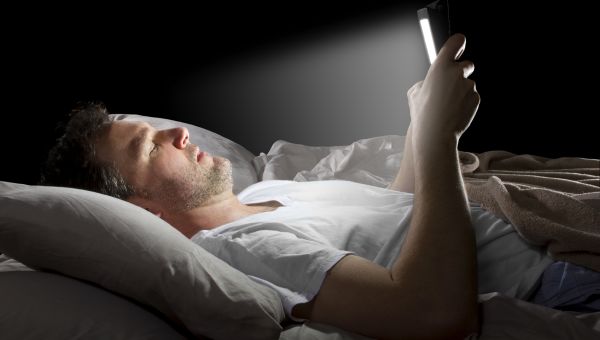
Lack of Sleep
If you’re on the go all day, you may find it difficult to slow down at night. After the pandemic began, many people’s sleep worsened due to factors like isolation, financial concerns, and other stress related to COVID-19. A 2020 study in the British Medical Journal theorized that these three… Show More
If you’re on the go all day, you may find it difficult to slow down at night. After the pandemic began, many people’s sleep worsened due to factors like isolation, financial concerns, and other stress related to COVID-19. A 2020 study in the British Medical Journal theorized that these three factors were behind worsened sleep quality in 20 percent of respondents.
Chronic loss of sleep can have all kinds of consequences, from snapping at your spouse to fuzzy thinking on the job. It can also increase your risk of accidents and heart disease.
Show Less
Strained Relationships
It's not just you whose well-being is affected when you're always on the clock—your friends and loved ones may feel it, too. Studies on workaholics have found that people who work too much report more estrangement from their families, less effective communication with their loved ones, and rockier… Show More
It's not just you whose well-being is affected when you're always on the clock—your friends and loved ones may feel it, too. Studies on workaholics have found that people who work too much report more estrangement from their families, less effective communication with their loved ones, and rockier relationships with their children. And those children have a higher risk of depression than kids with parents who have a better work-life balance.
Show Less
Potential Solution #1: Use That Vacation Time
The average American employee tends to use about half of their earned paid vacation time, according to a 2018 poll by the U.S. Travel Association. And the pandemic made things even worse for some. According to a survey from tax exchange company IPX1031, about 63 percent of people put off or… Show More
The average American employee tends to use about half of their earned paid vacation time, according to a 2018 poll by the U.S. Travel Association. And the pandemic made things even worse for some. According to a survey from tax exchange company IPX1031, about 63 percent of people put off or canceled planned vacations in summer 2020.
But time off can help your health. In one study published in Psychology & Health published online in 2019, researchers found that people who took vacations had a lower risk of metabolic syndrome, a group of conditions like high blood pressure and high blood sugar that increase the risk for heart attack and stroke. And the more vacations they took, the better off they were.
Show Less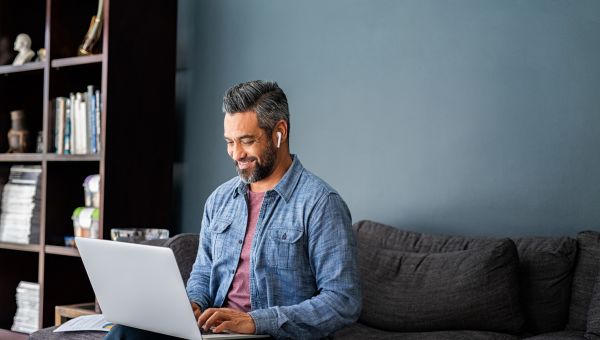
Potential Solution #2: Embrace Remote Work
Much of the workforce was forced out of the office once the pandemic began. Though juggling work and family responsibilities—like kids’ virtual learning—may have been stressful, many people found that working remotely, at least part-time, was beneficial for their well-being.
For example, a 2021… Show More
Much of the workforce was forced out of the office once the pandemic began. Though juggling work and family responsibilities—like kids’ virtual learning—may have been stressful, many people found that working remotely, at least part-time, was beneficial for their well-being.
For example, a 2021 study in Frontiers in Psychology found that people who worked from home reported less psychological and physical stress than people who returned to their offices. And while remote work was isolating for some, for others, it offered better work-life balance and more control over their work and time. Many welcomed not having to commute or travel for work, as well.
Remote work is not possible for everyone. But if it’s an option, and you’re not sure if staying home would be a good choice for you, talk with your employer about a hybrid work week—part time at home and part time at the office. The combination may best for your lifestyle and health.
Show Less
American Psychological Association. The American workforce faces compounding pressure. Page accessed on August 3, 2022.
Mental Health America. Mind the Workplace 2019. Accessed August 19, 2022.
Centers for Disease Control and Prevention. NIOSH: Stress…At Work. Last reviewed June 6, 2014.
Weston G, Zilanawala A, et al. Long work hours, weekend working and depressive symptoms in men and women: findings from a UK population-based study. Journal of Epidemiological & Community Health. 2019;73:465-474.
Jaskanwal S, et al. Association Between Work‐Related Stress and Coronary Heart Disease: A Review of Prospective Studies Through the Job Strain, Effort‐Reward Balance, and Organizational Justice Models. Journal of the American Heart Association. April 27, 2018.
Shimura A, et al. Remote Work Decreases Psychological and Physical Stress Responses, but Full-Remote Work Increases Presenteeism. Frontiers in Psychology. 2021;12.
Campbell and Gretchen Gavett. What Covid-19 Has Done to Our Well-Being, in 12 Charts. Harvard Business Review. February 10, 2021.
Korn Ferry. Workplace Stress Continues to Mount. Page accessed August 3, 2022.
Partinen M, Holzinger B, et al. Sleep and daytime problems during the COVID-19 pandemic and effects of coronavirus infection, confinement and financial suffering: a multinational survey using a harmonised questionnaire. British Medical Journal Open. 2021;11.
Tork. Take Back the Lunch Break Survey Findings. 2018.
Zeballos E, Todd JE. The effects of skipping a meal on daily energy intake and diet quality. Public Health Nutr. 2020 Dec;23(18):3346-3355.
Philip P, Taillard J, Micoulaud-Franchi JA. Sleep Restriction, Sleep Hygiene, and Driving Safety: The Importance of Situational Sleepiness. Sleep Med Clin. 2019 Dec;14(4):407-412.
Han WJ, Miller DP. Parental Work Schedules and Adolescent Depression. Health Sociol Rev. 2009 Jun 1;18(1):36-49.
U.S. Travel Association. Paid Time Off Trends in the U.S. 2019.
Gump BB, Matthews KA. Are vacations good for your health? The 9-year mortality experience after the multiple risk factor intervention trial. Psychosom Med. 2000 Sep-Oct;62(5):608-12.
IPX1031. How Americans Plan to Vacation During Covid-19. July 2020.
ScienceDaily. Medical proof a vacation is good for your heart. June 20, 2019.
Hruska B, Pressman SD, et al. Vacation frequency is associated with metabolic syndrome and symptoms. Psychology & Health. Published online: 17 Jun 2019.
More On


video

article

slideshow


video


video
